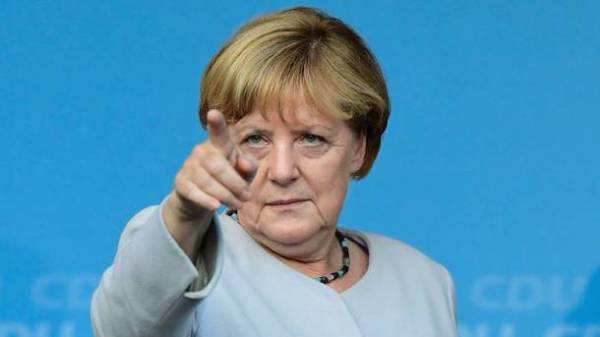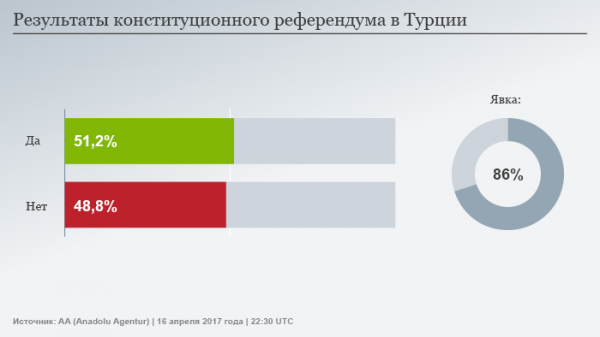
German Chancellor Angela Merkel and foreign Minister Sigmar Gabriel said that take note of the outcome of the constitutional referendum in Turkey. However, they noted that the results indicate a deep split in Turkish society, reports Deutsche Welle.
“The German government has urged Turkey to seek a respectful dialogue with all political and social forces in the country after a referendum in which, according to preliminary data, a slight majority of voters supported a constitutional amendment significantly expands the powers of President Recep Tayyip Erdogan” – the newspaper notes.
In a joint statement, Merkel and Gabriel reported that the almost equal distribution of votes shows just how deeply divided Turkish society.
They emphasize the great responsibility that lies on the Turkish state leadership and personally President Erdogan.
It is also reported that the head of the Office for democratic institutions and human rights (ODIHR) Michael link doubted that the referendum was created fair and the Venice Commission of the Council of Europe expressed serious concern about the procedure referendu
As you know, constitutional referendum in Turkey on the transition to the presidential form of government with a parliamentary ended with the victory of his supporters with a narrow margin. According to preliminary data, they scored 51.2% of the votes, which is 1.25 million more than opponents of constitutional reform. Final results will be announced through 11-12 days after appeals.

The opposition stated about violations during the referendum, in particular, criticizing the decision of the electoral Commission to count valid ballots and envelopes without stamps. The opposition intend to appeal the outcome of the referendum in the Turkish constitutional court and, if necessary, the European court of human rights.
A package of amendments to 18 articles of the Turkish Constitution implies that the President becomes the head of the state system, he will be endowed with the power to appoint Vice-presidents, Ministers and senior officials.
The Prime Minister will be abolished. Decisions on the establishment, dissolution, powers, responsibilities and structure of the ministries will be determined in accordance with the decrees of the President.
Right on the Declaration of state of emergency will be received by the President, approve the decision of the President on the state of emergency will be Parliament. The head of state will be able to publish and the other having the force of law decrees, which will enter into force without the prior approval of Parliament, but they can be canceled if lawmakers in the future they will reject.
The President will not be able to leave the ranks of his political party, as provided for in the current Constitution of Turkey.
Constitutional changes in the transition to a presidential system have been adopted by the Turkish Parliament and signed by President Tayyip Erdogan.
A parliamentary form of government exists in Turkey since 1923, when the Republic was proclaimed.







